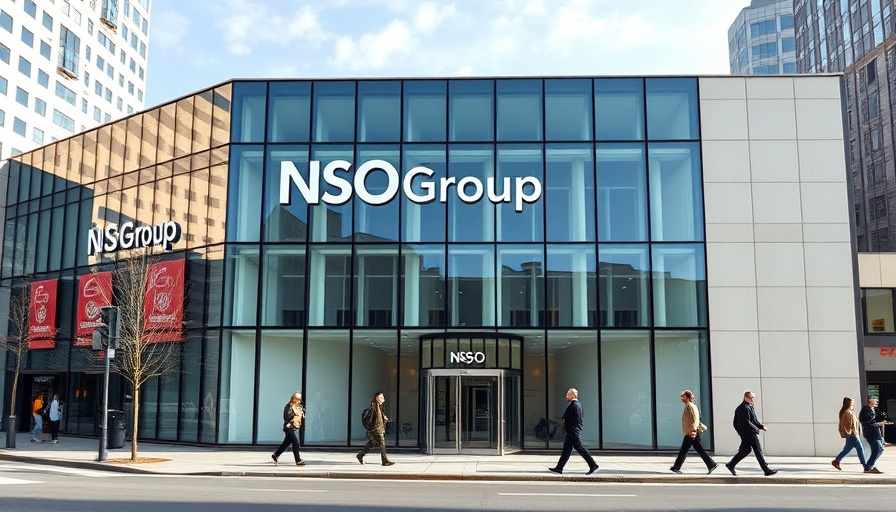
NSO Group's Bid for Justice: A Controversial Damage Appeal
In a notable court ruling last month, a jury mandated that NSO Group, a notorious spyware manufacturer, pay $167 million in damages to WhatsApp for hacking over 1,400 users in 2019. The decision was hailed by many as a powerful message against illegal espionage practices. However, NSO Group's reaction was anything but subdued; the company has labelled this punitive award as "outrageous" and has formally requested a new trial.
Understanding the Context of NSO's Appeal
NSO Group's recent motion contends that the damages awarded against it are excessively punitive and a reaction fueled by hostility rather than legality. Their lawyers argue that since punitive damages should typically not exceed fourfold the compensatory damages—which in this case were a mere $444,719—the jury's award far exceeds this legal limit.
This argument adds a layer of complexity to a case that not only holds significant implications for NSO Group but also sheds light on the broader conversations surrounding digital privacy, corporate accountability, and global cyber laws. As a company that develops powerful surveillance technology, NSO has faced intense scrutiny over the ethical implications of its software, especially as governments and corporations grapple with protecting individual privacy amidst rising cyber threats.
Implications for the Tech Industry
A recurring theme in the courtroom's drama is the conflicting views on the morality of surveillance technologies. Those in favor of stringent penalties, like WhatsApp, contend that companies like NSO Group should be held accountable for actions that undermine user trust and safety. WhatsApp's spokesperson, Margarita Franklin, emphatically stated, "For the past six years, NSO has tried to avoid accountability at every turn... this is another expected attempt to claim impunity." This sentiment echoes a sentiment found in many discussions related to tech ethics, where a call for responsibility is increasingly prevalent.
The larger question remains how much power firms like NSO Group can wield while operating outside of the law before facing real consequences. NSO's claims of deteriorating finances and fear of financial ruin following the judgment make this issue even more pressing. Critics argue that these claims are a smoke screen designed to garner sympathy, while potential future victims of such technology may continue to face threats from invasive spying methods.
The Bigger Picture: Cybersecurity and Corporate Responsibility
Certainly, this case does not just stay within the confines of a single courtroom. It reflects a broader struggle in the tech landscape about who oversees and regulates the balancing act between innovation and ethical practice. With the capabilities of technology outpacing the legal framework designed to govern it, society stands at a crossroads—one that begs a reevaluation of how digital services are monitored and regulated.
As tech giants become more entwined with government surveillance, questions about the implications of corporate accountability arise. Will punitive damages serve as a deterrent against unethical hacking practices, or will they merely push companies like NSO to shrink their footprint? And what does this mean for the future of privacy?
Future Predictions for Technology and Regulation
As NSO Group battles this lawsuit, the tech industry could witness a shift toward stricter regulations surrounding hacking and surveillance technologies. Experts predict the potential for more lawsuits and heightened scrutiny of spy technology companies, which may lead to legislative actions that hold these firms responsible for their creations more decisively.
Only time will tell if NSO's appeal will alter its fate, but the implications of this case are likely to ripple through the tech ecosystem, ushering in new conversations about user privacy, corporate ethics, and the responsibilities of tech companies.
The Ongoing War Against Digital Espionage
As the world becomes increasingly digital, the ramifications of espionage technology escalate. The NSO Group saga is a reminder that as much as technology advances, ethical standards must advance even faster. Legislation must strengthen to protect individuals and maintain the trust that is fundamental to services like WhatsApp. The fight to regulate spyware is not just a legal battle; it is a requirement for a safe digital future.
 Add Row
Add Row  Add
Add 



Write A Comment